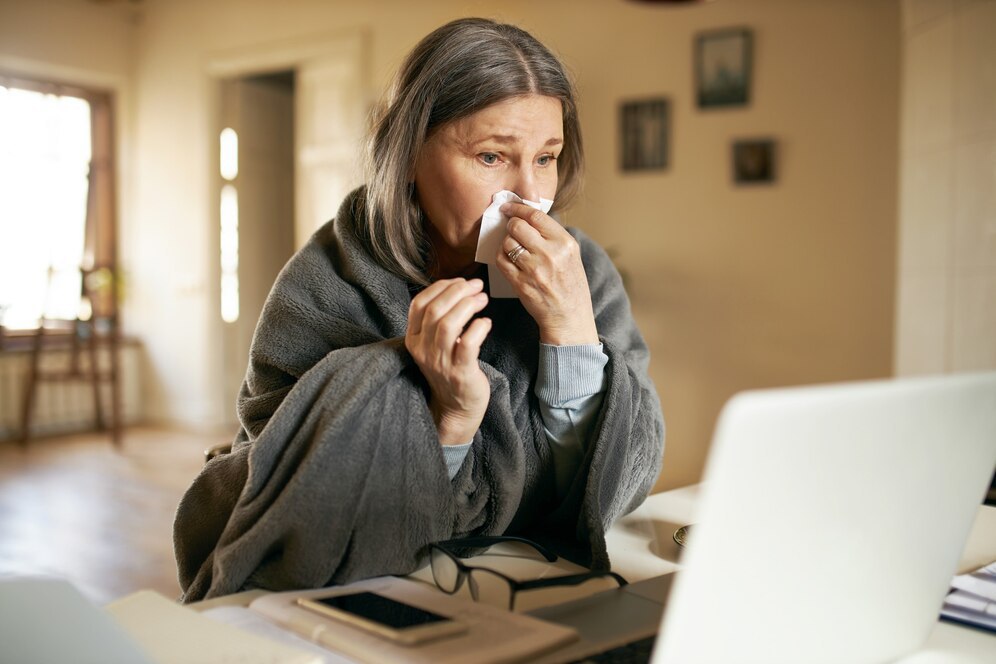Seasonal allergies, also known as allergic rhinitis or hay fever, are common, especially during spring and fall. When plants release pollen, many people experience symptoms like sneezing, coughing, and itchy eyes. These symptoms can disrupt daily life, but there are effective ways to manage them.
Recognising the Symptoms of Seasonal Allergies
Seasonal allergies occur when your immune system reacts to airborne allergens like pollen or mould. Common symptoms include:
- Sneezing and nasal congestion
- Runny or stuffy nose
- Itchy or watery eyes
- Coughing or wheezing
- Itchy throat or ears
If these symptoms worsen during certain seasons, you’re likely experiencing allergies.
Managing Your Symptoms: Treatment Options
There are several ways to treat seasonal allergies, from over-the-counter (OTC) remedies to lifestyle changes.
1. Over-the-Counter Medications
OTC medications are often effective. Popular choices include:
- Antihistamines: Like cetirizine (Zyrtec) or loratadine (Claritin) to reduce sneezing and itchy eyes.
- Decongestants: Such as pseudoephedrine (Sudafed) for nasal congestion. Nasal sprays should be used cautiously to avoid rebound congestion.
- Nasal Corticosteroids: Sprays like fluticasone (Flonase) are very effective for allergy symptoms.
2. Prescription Medications
For more severe cases, a doctor might recommend stronger treatments, including prescription nasal sprays or leukotriene inhibitors like montelukast (Singulair).
3. Allergy Shots (Immunotherapy)
Allergy shots expose you to small amounts of allergens over time, reducing your sensitivity. This is a longer-term solution for severe allergies.
Lifestyle Changes to Reduce Allergy Triggers
Reducing your exposure to allergens can significantly ease symptoms. Here are some tips:
- Stay indoors on high-pollen days: Check pollen counts and avoid outdoor activities during peak times.
- Keep windows closed: Use air conditioning instead of opening windows to keep pollen out.
- Shower after outdoor activities: This helps remove pollen from your hair and clothes.
- Clean your home regularly: Dust mites and pollen accumulate indoors, so vacuum often, using a HEPA filter.
- Consider air purifiers: HEPA filters can help reduce indoor allergens.
When to Seek Professional Help
If your symptoms are severe or don’t improve with OTC treatments, consult with a healthcare professional. We offer allergy testing and personalised treatment plans at Metro Medical Centre.
Conclusion
Seasonal allergies can be managed with the right combination of treatments and lifestyle changes. If you’re struggling with symptoms, our medical centre is here to help with expert care and support. Contact us today to schedule an appointment.


